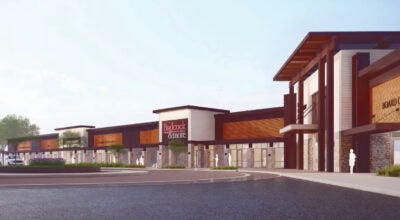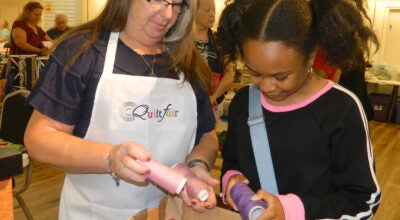City Council approves demolition requests, OKs first phase of rezoning
Published 12:00 am Wednesday, November 21, 2018
SALISBURY — The City Council approved several demolition recommendations by the code enforcement department to cheers from the audience at Tuesday’s meeting.
The council approved demolishing houses at 208 Myron Place, 306 Institute St., 424 Partee St., 504 E. Liberty St., 711 E. Liberty St. and 1408 S. Fulton St.
“These structures in their current condition possess signifiant health and safety risks to the general public and are negatively affecting the neighboring property values,” said Michael Cotilla, code enforcement coordinator. “They are all found to be unfit for human habitation at various stages of dilapidation due to fire, weather or property owner neglect.”
Preston Mitchell, who resigned last week as development manager for the city, said initially there were 16 houses that were proposed to be demolished, but the owners of 10 of them said they would demolish the houses themselves or have begun repairs.
“When you start with 16 and you’re actually only coming to demolish six, that’s fantastic,” Mitchell said. “What that means is it tends to get people’s attention. If not the owner’s attention, it gets the market’s attention.”
The council also approved a request from the Historic Preservation Commission to demolish the building at 403 N. Main St., which is in the downtown local historic district. It would be replaced with a Sharonview Credit Union.
“While this facility is on the outskirts of downtown, our plan would be to make it a part of the historic district, to make it look like, feel like a part of the downtown community,” said Ricky Otey, chief operating officer at Sharonview. “Our plan is to make this a part of the community, to be a part of downtown Salisbury and to continue the partnership we have had for a number of years.”
Sue McHugh, who lives on North Main Street and is a member of the Historic Preservation Commission, spoke during a public hearing.
“We have watched this building deteriorate for years and years, and we’ve just been dying for somebody to do something,” McHugh said. “I am very much in favor of the demolition.”
In other business, council members discussed the first stage of the rezoning of properties from institutional use to community and institution. It pertains to 25 properties on major thoroughfares and boulevards.
Councilwoman Tamara Sheffield asked what the benefit the rezoning would have.
“It gives a consistent and uniform zoning district for all of the uses that are of a civic and community-oriented benefit,” said Teresa Barringer, zoning administrator. “Rather than we’ve had a couple different requests throughout the years and in recent months for electronic message centers for these type of uses. We’ve been unable to assist in that manner because of the current base zoning district.”
Mitchell cited as an example Carmel Baptist Church at 2100 Mooresville Road, which is one of the properties to be rezoned.
“Institution uses and public safety uses are unique because they might be found across a broad spectrum of zoning district,” Mitchell said. “Let’s take Carmel Baptist. You could have a Carmel Baptist built in general residential, an identical Carmel Baptist built in urban residential and a third one in RMX. They’re all going to be subjected to different development standards. That’s why this is beneficial because what it does is it takes all these institutional type uses and gives it the same zoning platform.”
Several residents spoke during the public hearing. Some church leaders spoke in favor of the rezoning because it would allow them to have an electronic message center. Others in opposition worried about the signs being a distraction or making Salisbury look like the Las Vegas Strip.
One person asked if the city had included information about electronic signs when rezoning notices were sent. City staff members said it was.
The council approved the first phase of the rezoning plan.
City Planner Kyle Harris presented a resolution to establish a Fair Housing Steering Committee. The committee would have four members from the Human Relations Council, four members from the Housing Advocacy Commission and seven members appointed by the council.
Several council members said they would need to establish criteria for the council-appointed members. They agreed that Sheffield and Mayor Al Heggins would come up with criteria that would be discussed at the Dec. 4 council meeting.
Applications would be approved at the Jan. 2 meeting.
The council also made two appointments. Brandon Najarian was approved as a member of the Transportation Advisory Board, with council members noting he uses public transportation and graduated from the Citizens Academy. Jayne Land was appointed to the Planning Board.
The City Council next meeting is at 5 p.m. Dec. 4.



